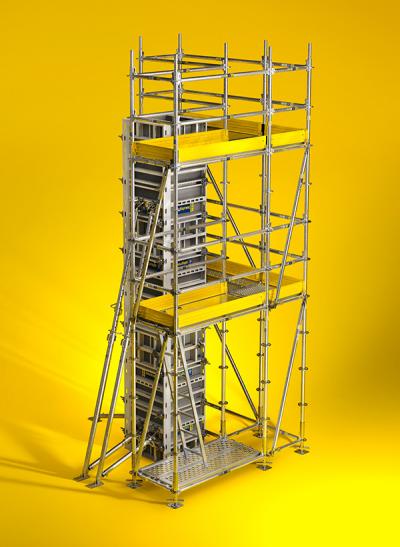Product Carbon Footprint
Data-Driven Sustainability

Transparency for Sustainability:
How the Product Carbon Footprint Contributes to a Greener Future
Over the past few years, the question of greenhouse gas emissions generated throughout the entire lifecycle of a product and their impact on the climate has gained increasing significance. The Product Carbon Footprint (PCF) can assist in providing the necessary answers and much more.
The product carbon footprint (PCF) measures the total greenhouse gas emissions (GHG) generated by a product across all its relevant material life cycle phases. The PCF is a key indicator of a product's contribution to climate change, and thus provides a valuable tool to companies and consumers who wish to evaluate the environmental impact of individual products and implement targeted measures to reduce greenhouse gas emissions. As a first mover in the formwork and scaffolding industry, the Doka team has already conducted life cycle assessments according to ISO 14044 for more than 7,000 products. Doka has been providing its customers with data and expertise on the topic of carbon footprints since 2022.

Our customers can access the PCF data in a number of ways: The data can be provided either as an addendum to a quotation or an invoice for a project. We also collect the data for all products purchased or rented within a certain period. For more information, please contact your Doka representative.
We differentiate between rental and by use cases. We can also calculate the PCF on a proportional basis for the respective rental period of the formwork.
Yes, it is. PCF data is available for our formwork and scaffolding solutions.
Our clients are primarily interested in receiving the data for phases A1-A3, which is the standard value we provide. The specific GSV product value can always be sent upon request.
With the aim of establishing a common standard for PCF calculation for the entire industry, we have openly shared our calculation methodology with our market partners. The agreement on minimum standards of the Güteschutzverband Betonschalungen Europa e.V (GSV), is the result of intensive cooperation within the dedicated working group.
Contact



